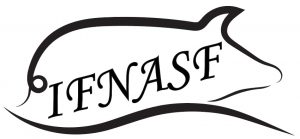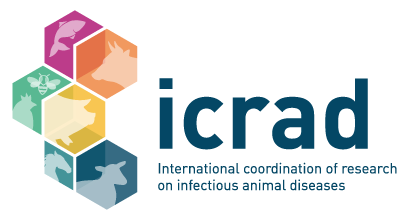Project details
Acronym: IFNASF
Researcher: Dr Yolanda Revilla
Countries: Spain, Germany, Poland, Sweden

Project Summary
ASF remains the greatest limitation to the development of the pig industry in Africa and recently became a big threat all over the world.
Since the first outbreak in the Caucasus in 2007, ASF spread to fourteen countries of Europe. In China the disease has produced the culling of more than 1,000,000 domestic pigs, thus emphasizing the danger that ASF represents for the world swine industry. Both the biology and epidemiology of ASFV is complex, and after long periods in infected areas, mortality rates of animals can drop and subacute, chronic or subclinical forms of the infection produced by low virulent, called “naturally attenuated virus”, frequently arise.
Knowledge about the effective immune response against this pathogen remains incomplete, and the precise host mechanisms that can be harnessed to defend against this virus, and therefore the basis for rational vaccine design, are still uncertain. Unequivocally, no efficient and safe vaccines against ASF will be developed without a whole knowledge of the virus host interaction, specifically on the viral mechanisms to evade the host innate immune response.
Scientific and technical development ahead of existing knowledge
The scientific and technical advances that constitute the ambition of this project are focused on the generation of knowledge to unravel the complexity of the virus-host interaction. Both the molecular structure of the virus and its relationship with the infected cells would regulate critical defense mechanisms. The innate immune response, specifically the virus-induced type I IFN control mechanisms will be the main goal of IFNASF.
Novel concepts and approaches
The IFNASF innovation potential starts with its original strategy to manipulate the genome of different strains of ASFV using an in-house CRISPR/Cas9 system (CSIC), targeting genes from viral DNA non-essential regions, which have been shown to have functions related to pathogenesis, viral spread and virulence. This recombinant viruses will be tested in vitro, to characterize the steps of the IFN-pathways (cGAS/STING and JAK/STAT) interfered by the viral genes. Furthermore, the innovative potential of using these kinds of “IFN-regulating prototypes” will include other of the most innovative elements of our proposal: the combination of novel approaches for generating MVA vectors encoding ASFV regulatory genes (LMU, CSIC), further tested in pig trials (PIWET), and finally analyzing the precise genes inhibiting type I IFN synthesis in the animals through RNA sequencing (scRNA-seq) (SVA). High-throughput sequencing methods have revolutionized biology since the prospect to study entire transcriptomes using RNA-seq. Yet, RNA-seq is classically made in “bulk,” analyzing gene expression from millions of cells. Here we use scRNA-seq generating sequencing libraries from isolating single cells from blood of immunized pigs, allowing the assessment of type I IFN and IFN-dependent genes at unique resolution. We will use state-of-the art scRNA-seq protocols and the basics of data analysis and factors which are important to consider before planning an scRNA-seq project (SVA/CSIC).
The Consortium as a whole
IFNASF is a four-actor (CSIC, LMU, PIWET, SVA) driven ICRAD Action to improve the European research on the molecular and immunological knowledge on ASFV/ host interaction. The coordinator of IFNASF has participated in two European projects focused on ASFV/Host interaction:
ASFRISK (Evaluating and controlling the Risk of African Swine Fever in the EU; DG-Research, KBBE-2007-1-3-05; https://cordis.europa.eu/project/rcn/88394_en.html ) and ASFORCE (Targeted Research Effort on African Swine Fever in view of development of protection tools against ASF DG-Research, KBBE.2012.1.3-02, 311931; https://cordis.europa.eu/result/rcn/182067_en.html ). The rest of the partners are fully committed and have the expertise and the methodology to efficiently join this action.
